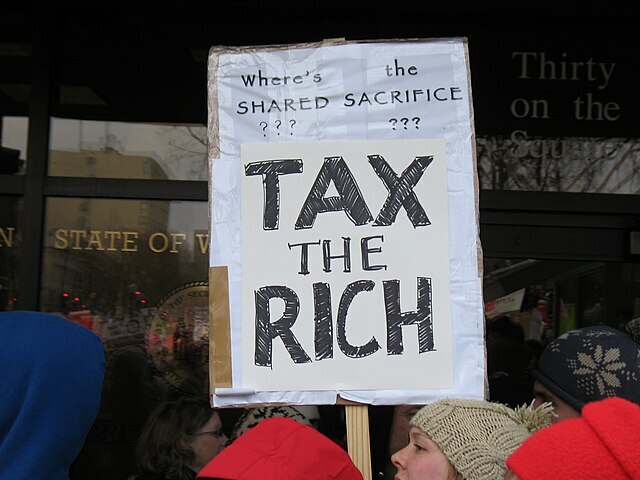- Lower income taxes allow people to keep more of their hard-earned money and spend it on their needs
- Some would argue that your money would be better spent by politicians who are incentivized to grow government
- North Carolina has been a leader in issuing tax cuts that deliver money back to the people who earned it, helping everyone in our economy flourish
Income tax cuts benefit all taxpayers. Yet some recently called North Carolina’s tax cuts “harmful” and the latest budget adjustments a “missed opportunity” to repeal them.
Why? Who wants to see more of their hard-earned money going to the government?
The NC Budget & Tax Center claimed tax cuts put “critical services” at risk of further cuts. They argue that the state budget (more accurately, productive workers) can fund these government needs. But how much spending is enough to satisfy these needs?
State spending has increased over time. The latest budget increased year-over-year spending by nearly $2 billion, or 7.6%. It seems that no amount of funding could satisfy the needs of the state, as defined by many on the Left. Moreover, the past decade of conservative leadership has seen both relative fiscal restraint and higher spending on public schools and Medicaid.
The NC Budget & Tax Center wrote that “the state will lose $1.6 billion in revenue as the tax changes from last year begin to be implemented.” A better way to put this is that hard-working North Carolinians will keep $1.6 billion more of their earnings to spend on their needs.
Limiting government revenue would be a step in the right direction. Curtailing the amount of revenue taken from taxpayers is essential to any discussion of shrinking government. The state has grown far beyond its proper, core functions to the detriment of the people and individual freedom. And more government revenue means more opportunity for political leaders to fight for their piece of the pie – with pork spending and corporate welfare as prime examples.
Keep in mind that the largest component of the state budget is state employee salaries, and 88% of the General Fund budget goes to paying people; i.e., salaries and benefits both for current workers and retirees. Any discussion about increasing spending will necessarily increase taxpayers’ long-term liability to support more state employees indefinitely.
Tax cuts are not in opposition to the needs of the state. In fact, tax cuts directly contribute to the needs of the state by helping state taxpayers be able to meet more of their own, individualized needs.
Here are four reasons to support tax cuts:
1. It’s your money
Money belongs to the people who earn it. Besides taxes for core government functions, your money should belong to you. The government does not have a right to claim more from earners. Taxpayers must always question the government’s growth as it produces nothing on its own.
2. Because it is your money, you will spend it more efficiently
As the earner, you have both the incentives and the market signals enabling you to spend, save, or invest your money more efficiently than the government. Money will generally go further and benefit more people if left in private hands. Voluntary market exchanges create win/win situations, while government taxation is decidedly a zero-sum game. Central planning systems do not aptly prioritize budgets. Those in charge of budgets are incentivized to expand them. How many private companies have either debt or insolvent programs that can rival those of the U.S. government? Those that do, go out of business and their assets get redirected to more responsible owners.
3. Tax cuts help the economy, and especially help low income families and small businesses
Tax cuts increase disposable income and encourage business investment and jobs. In North Carolina, fiscally conservative leadership has resulted in a pro-growth trifecta: raising the standard deduction of the personal income tax, lowering personal income taxes, and phasing out the growth-stifling corporate income tax. Increasing the standard deduction means that more of the lowest-income families in North Carolina will pay nothing in state income taxes. The low personal income tax rates help individual earners and small business owners. Low corporate taxes mean businesses are less burdened with tax liabilities, allowing them to spend more on salaries, which means bigger paychecks and more jobs across the state. With inflation raging, North Carolinians need to be able to keep more of their hard-earned money, not less.
4. High taxes discourage work
Business taxes in particular are passed down to workers in the form of lower wages and fewer jobs. High marginal income taxes reduce individual incentives to work. Some may be encouraged to substitute traditional sources of income with other jobs that are not traditionally taxed, like pet sitting or housesitting, or get paid under the table, causing distortions in the labor market.
The state budget is composed of limited resources requiring strict prioritization. For some problems, such as how to bring about more affordable health care, more government spending hasn’t been the answer, but the market could bring answers if government would get out of the way. Allowing workers to keep and spend more of the money they earn, however, does address the needs of the state.
North Carolina has been a national leader in tax reform. Over the last two decades, dozens of states have undergone fiscally responsible reforms. Twenty-five states since 2012 have lowered their income tax rates, according to the Tax Foundation. Only four states have raised rates since then. Tax reform works.
But the NC Budget & Tax Center disagrees: “For our state’s present and future, it’s imperative that lawmakers put the needs of North Carolinians first and foremost. This means rolling back these tax cuts that will harm every corner of our state as they are implemented.” I would argue it is indeed imperative that lawmakers put North Carolinians first, by letting them keep more of what they earn and use it for their needs.


